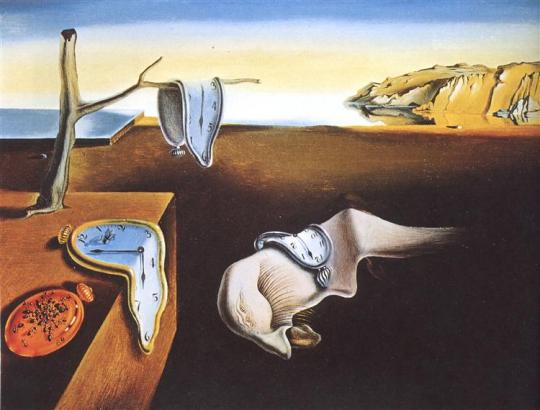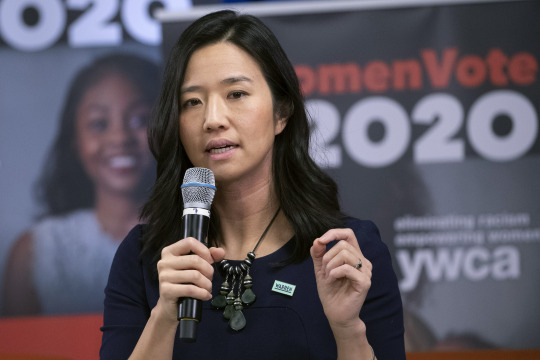Tea solves most things. And what tea can't solve you have to solve yourself.
Don't wanna be here? Send us removal request.
Text
“We make our world significant by the courage of our questions and by the depth of our answers.
—CARL SAGAN
"An appeal to authority is not an automatic win of an argument," a philosophy graduate countered in response to Fiona Bruce, host of the BBC series Question Time, a topical debate program that has been on-air since the 70s.
In this case, the philosophy graduate was an antivaxxer that BBC invited to participate as an audience member to see if Question Time's featured guest, world-renowned immunologist Robin Shattock, could appeal to an antivaxxer's sense of reason. BBC vetted the participants to weed out more radical ones to present a more "measured" antivax perspective.
As the audience member attempted to make his next argument about underreporting in dangerous vaccine side effects, Bruce interjected to emphasize Shattock's credentials, but the audience member only appeared to double down on his stance.
Yet, BBC is merely showing what we have witnessed countless times: people behave irrationally! Although many of us would like to continue to indulge in the fantasy that we are consistently rational decision-makers (thanks, economists), the evidence has often shown the contrary.
And so, the audience member's response to Question Time's host makes a fair point: an appeal to authority doesn't necessarily win you an argument. Especially if it's an authority you don't trust. Many conspiracy theorists reference supposed "authorities" in their arguments, much like Joe Rogan did in his apology as he justified hosting anti-vax figures like Dr. Robert Malone on his podcast The Joe Rogan Experience.
Notably, Rogan said something in his initial COVID-19 misinformation apology that caught my attention: "Many of the things that we thought of being as misinformation just a short while ago are now accepted as fact."
Rogan then went on to list these examples of information that would have been banned from social media at the beginning of the pandemic:
Vaccination doesn't prevent you from catching and spreading COVID-19
Cloth masks aren't effective
COVID-19 originated in a lab
I blame Rogan's first point on the White House and the CDC's poor messaging around vaccines getting mixed in with rightwing misinformation. The politicization of vaccines prevented many people (including those on the left) from fully understanding what many experts pointed out, which was that vaccination would not be the silver bullet putting an end to the pandemic — it was only helpful insofar that it reduced the likelihood of severe illness and hospitalization for relatively healthy people. Anyone claiming that the vaccine had no benefits against COVID-19 whatsoever had their claims rightfully removed from social media.
Cloth masks faced a similar dilemma — studies on masking weren't extensive at the beginning of the pandemic. In particular, randomized controlled trials studying masking protection against Sars-CoV-2 were rare due to the ethical dilemma of conducting a comparative study in the midst of a pandemic (i.e. Group A will have parachutes, and Group B won't get parachutes, and we'll see which group has the most survivors jumping out the plane!). Furthermore, supply chain issues along with the growing transmissibility of the virus with each new variant resulted in changing guidance on masking. And cloth masks, worn properly, are still better than no masks at all.
Finally, let's address the popular lab leak theory. Birthed during a period of heightened anti-Asian sentiment when former President Trump insisted that Sars-CoV-2 be called the "Wuhan virus," it wasn't hard to see why the theory suffered from politicization. Broad Institute scientist Alina Chan attracted a firestorm of attention when she, along with other scientists, publicly advocated for further investigation into the lab leak theory while criticizing the WHO and fellow scientists who thought a lab leak was extremely unlikely. When Biden's intelligence teams acknowledged that the lab leak theory couldn't be ruled out, people like Rogan felt vindicated, but in fact the theory was simply contentious due to a lack of evidence entangled in the scrutiny of a heated political moment.
In all of this, there is a strange implication shared by all of Rogan's points, which is that science must be unchangeable in order to be "good science" and that there can only one definitive answer, one wholly unadulterated truth.
As a humanities person, I find the overall perception that science is more definitive, more rigorous, and more rational than the humanities admittedly irksome. Depending on the approach, there are things that do ring true about this, especially if you take into account that science produces measurable results. But this results in a tendency towards the belief that the sciences are always conclusive when in fact any halfway decent scientist can tell you that their conclusions are never definitive. The hypotheses that scientists base their models and experiments off of can only be supported or unsupported by evidence or lack thereof, and science performed in any field requires hundreds if not thousands of studies refined over the course of many, many years for something to be formally "proven" or "disproven."
So why do we still misunderstand science in this way? My best guess is that our love affair with rationality is in part reflected in our obsession with technocracy. Definitive answers and measurable results are an easier way of discerning how right or wrong we are rather than worrying over the mess of dissenting opinion that comes with participating in a democratic society.
It certainly doesn't help that the scientific community is often at odds with the very group that recognizes quality research — peer-reviewed journals. Every scientist I've ever met has groaned and harangued to me about how corrupt and unfair the peer-review process is, which TikTok star Dr. Glaucomflecken sums up tidily in a recently posted video because research publishing is unfortunately a joke that writes itself.
That all published research gets immediately obscured behind a paywall is also problematic, but mostly for the scientific community. For the laymen, it poses less of a problem, simply because the average person does not know what constitutes a "good study." The words "single-blinded", "double-blinded", "pilot", "clinical", etc. mean very little to most people. But should everyone need to know what these terms mean? It seems wisest to leave interpretation up to the experts in determining which methodology is best and what conclusions ought to be drawn from it.
Still, that doesn't prevent many people from "doing their own research" and I include myself in that category. As we photoshop images and write code for deepfakes, it's becoming harder and harder to discern fact from fiction. Theodor Adorno feared this would happen as he witnessed the rise of Hollywood, viewing this "culture industry" as a potential tool for fascist propaganda. As technology advances, so too does our ability to simulate and fabricate potential realities.
So how does one combat the blurring of the lines between reality and fantasy? Perhaps we would be better off if we could accept that in a postmodern era the mutability of our nature means that nothing is constant and context is everything. But for society to not fray into chaos means trusting each other and our institutions to be mostly fair and rational. And it's still not clear what that means for the largely irrational who are convinced of their rationality.
0 notes
Text
Pandemic ennui

"There is no future. The past and the present are the same thing." - Spencer (2021)
"As time goes on you'll understand. What lasts, lasts; what doesn't, doesn't. Time solves most things. And what time can't solve you have to solve yourself." - Haruki Murakami, Dance Dance Dance
Today, I feel compelled to indulge in the unoriginal sentiment that the pandemic is getting old.
For Americans in particular, these feelings seemed to manifest most potently in early January of this year, when the CDC declared that people only needed to isolate for five days after testing positive with asymptomatic COVID-19. Never mind that hospitals were becoming overwhelmed and healthcare workers were begging people to exercise caution. Never mind that less than 40 percent of fully vaccinated Americans have been boosted during a time when the most infectious form of the variant is becoming the dominant strain. Two years in, it's unclear if the lessons learned at the start of the pandemic have taught us anything.
In the frozen north of the People's Republic of Cambridge, through the windows of cramped cafés and restaurants, observe: people sipping their drinks, masks off as they chat animatedly about the latest and greatest in whatever passes for the latest and greatest these days, which frankly isn't much (but Harvard and MIT don't want you to know that, right Mr. Epstein?).
It's not as though the desire to stay warm whilst partaking in the usual winter merriment is beyond understanding. I feel the loss of our pre-pandemic winter festivities as keenly as anyone else.

But in seeing unmasked people lingering in shopping malls and restaurants, the loss feels even sharper. It's as though a cloud of amnesia has settled over the populace. Masked waiters, bussers, and retail workers conceal their discomfort (or ignore it, which should be part of the job description: ability to overcome discomfort by pretending it doesn't exist) and serve as a reminder of an ongoing pandemic as unmasked customers exhale airborne particles that settle into the enclosed area, sometimes trapped by plexiglass because someone on TV once said something about building walls so of course erecting more barriers seemed the most sensible thing to do until we all realized it was just theatre.
Swearing in on Jan. 3rd, Mayor Michelle Wu—first woman Boston mayor, first Asian Boston mayor, first person of color elected Boston mayor, first Boston mayor to give a damn—has graced us with her presence by mandating proof of vaccination in Boston (better late than never, I say), setting in motion similar mandates in Cambridge and Somerville that have yet to come to fruition despite the predictable winter surge in Omicron.

But this is just a microcosm in the grand scheme of government officials who can't get their act together in every part of the world, making more Novak Djokovic-type martyrs who proclaim their unvaccinated status and insist that natural immunity is the best type of immunity because nothing manmade can be trusted except for Christianity and Joe Rogan, amen.
This morning I read a story about an unvaccinated Czech singer named Hana Horka who intentionally exposed herself to COVID-19 when her fully vaccinated son and husband had the virus so she could access social and cultural venues in the Czech Republic, which requires proof of vaccination or proof of prior infection. Thinking she was on the mend, Hana posted to social media: "Now there will be theatre, a sauna, a concert." Now there is no Hana—only precious and painful memories carried on by her loved ones into an uncertain future.
0 notes